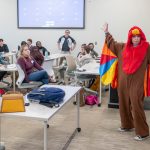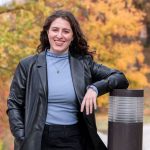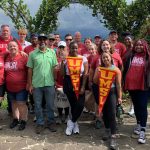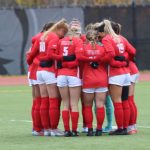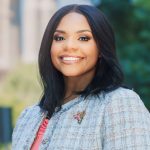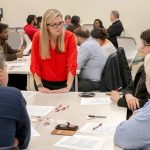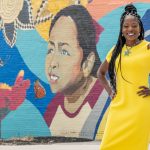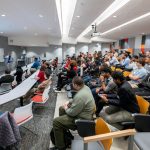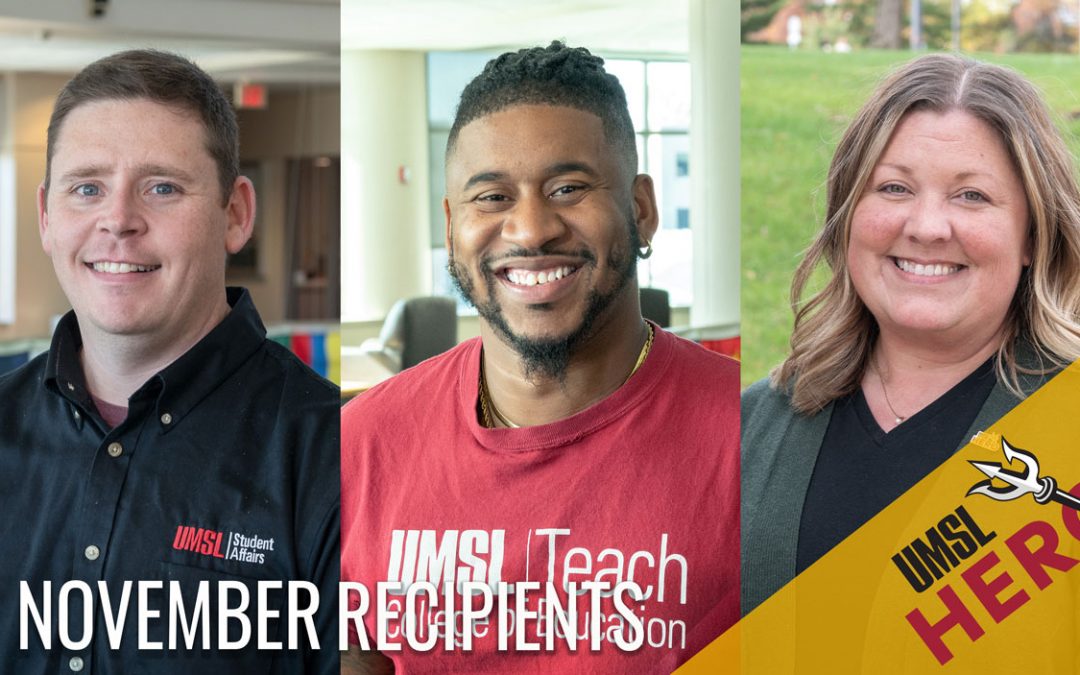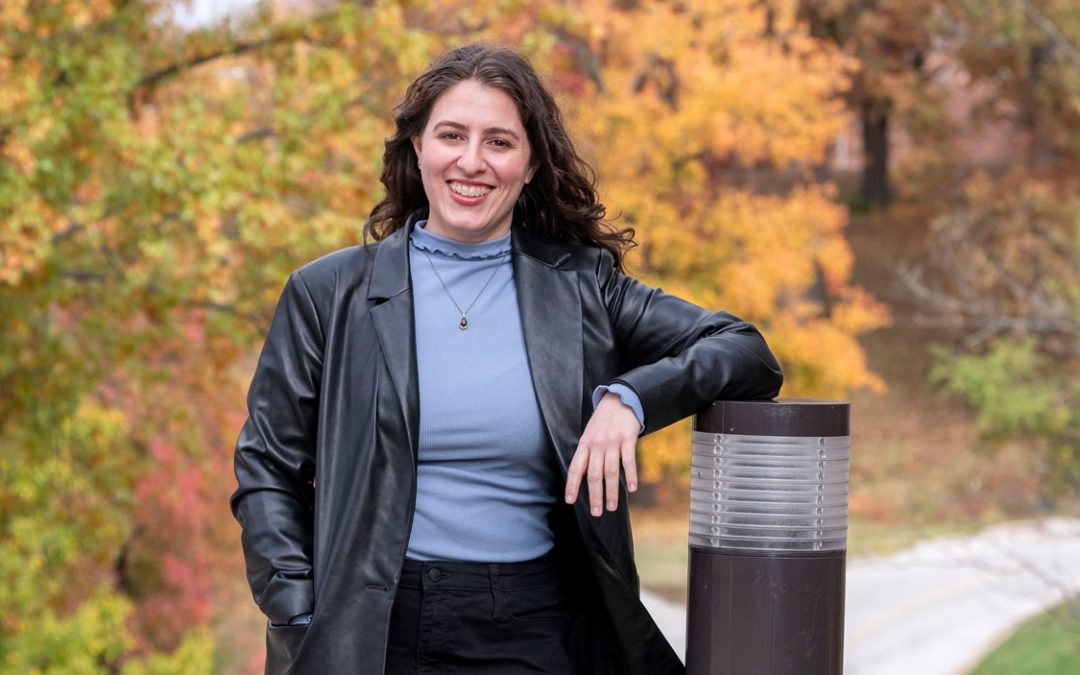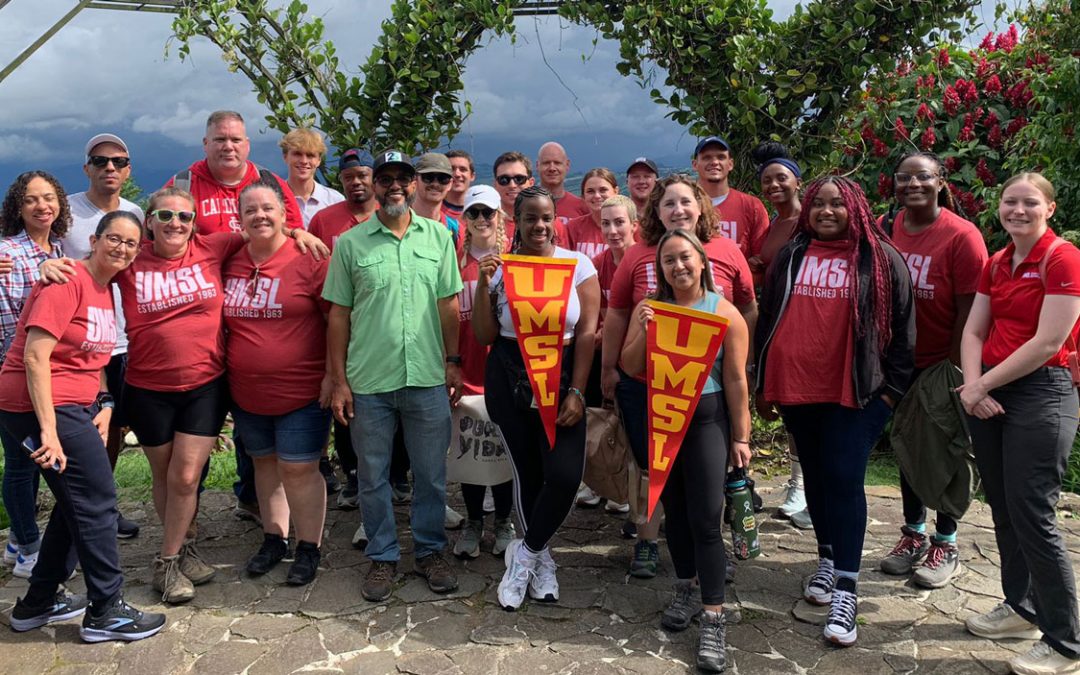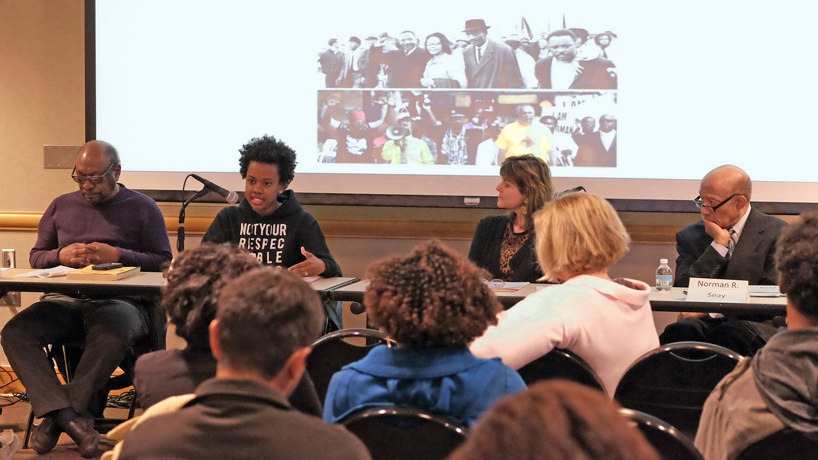
Seated among fellow social activists Percy Green, Virginia Braxs and Norman Seay, UMSL student Brittany Farrell of Millennial Activists United (second from left) shares her perspective on the movement sparked by events in Ferguson, Mo. (Photo by August Jennewein)
“How does the civil rights movement of the 1960s compare to the recent marches and protests in Ferguson?”
Members of the University of Missouri–St. Louis campus community listened as a panel of social activists tackled this topic Feb. 9 in the Millennium Student Center.
Titled “From Marches to Millennials,” the forum occurred six months after the death of Michael Brown and featured four local activists and agents of social change: Virginia Braxs, Brittany Farrell, Percy Green and Norman Seay.
Eighty-three-year-old Seay, who spent three months in a St. Louis jail for participating in local protests decades ago, opened his remarks by holding up his hands.
“You know of course what I’m saying – ‘Don’t shoot me,'” Seay said. “When I saw those youngsters demonstrating [in Ferguson], I wanted to be there. I wanted to march with them, carry signs. But I couldn’t.”
Braxs, a Washington University faculty member who overseas several Latino outreach efforts in the St. Louis region, described overlapping issues and vulnerabilities facing the Hispanic and African American populations.
“Talking about race is really hard for our communities and our society,” Braxs said. “But we have to do it in order to address these issues … To talk about how we resolve poverty, we need to start talking about race.”
Farrell talked about the leadership and messaging of the Ferguson protest movement – including the criticism that it lacks “a single, charismatic leader.”
“This is group-centered leadership,” she said, listing various co-organizers by name. “They’ve all sacrificed so much.”
Green said he sees the demonstrations of the 1960s as centered around similar social issues – and that the communication methods are the biggest difference.
“We didn’t have the advent of social media – we had the telephone,” he said. “The whole messaging, the whole organizing process was quite different then than it is now.”
Green added that the focus on Ferguson has drawn important attention to the continuing problem of racism.
“I don’t know why so many of us have been programmed to think protesting is something bad,” he said.
Monday’s forum was the third in a series of campus conversations sponsored by the Chancellor’s Cultural Diversity Council, the Office of Equal Opportunity & Diversity and the University Program Board.



